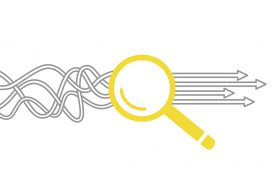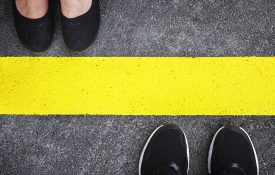-
Scientists are working on a pill for loneliness
Loneliness is part of the human condition. A primeval warning sign, like hunger or thirst, to seek out a primary resource: connection. Millions of years of evolution have shaped us into creatures who need social bonds in the same way that we need food and water. And yet we increasingly find ourselves isolated. Loneliness is no longer a powerful enough driver to break us out of the silos created by modern life. Like our insatiable love of high-calorie foods, what was once an adaptive tool has become so misaligned with the way we live that it’s causing, in the words of the former surgeon general Vivek H Murthy, an “epidemic”.
-
How The Stigma Against Obesity Harms People’s Health
If you’re one of the nearly 40 percent of Americans who are obese, you don’t need anyone to explain the associated stigma; you’ve probably experienced it in some form or another — jokes about your weight, teasing, bullying, employment discrimination (which is legal in 49 states), prejudice and unfair treatment. This kind of stigmatization doesn’t just create hurt feelings, it can harm your health. The research suggests that reducing stigma against obesity could give overweight people a health boost — even if they never shed a single pound. Stigma can harm health in many ways.
-
Puerto Rico’s “Fear Lab” Mentors Neuroscience Rigor amid Diversity
A lineage of young neuroscientists from diverse backgrounds trace their scientific roots to a “fear lab” in Puerto Rico that the National Institutes of Health has been supporting for two decades. A crucible for studies of fear extinction, the lab has so far published 80 papers—some the first ever from Puerto Rico for certain journals—that generate more than 2,000 citations a year. Of 130 young people trained in the lab, 90 percent are from Puerto Rico and Latin America and half are women.
-

Policy Statements on the Effects of Media Overlook Scientific Complexity
Organizations and associations have issued statements about the effects of media exposure, but many such statements do not accurately reflect the available scientific evidence, researchers find.
-

Putting Yourself in Their Shoes May Make You Less Open to Their Beliefs
Trying to take someone else’s perspective may make you less open to their opposing views, according to findings published in Psychological Science, a journal of the Association for Psychological Science. “As political polarization in America
-

European Commission Calls for Research on Technology’s Impact on Youth
The European Commission is accepting proposals for research on the impact of information and communications technology on children and adolescents. Proposals should contribute to an integrative, longitudinal understanding of the potential benefits and threats of digital media use for those under 18 years old.

